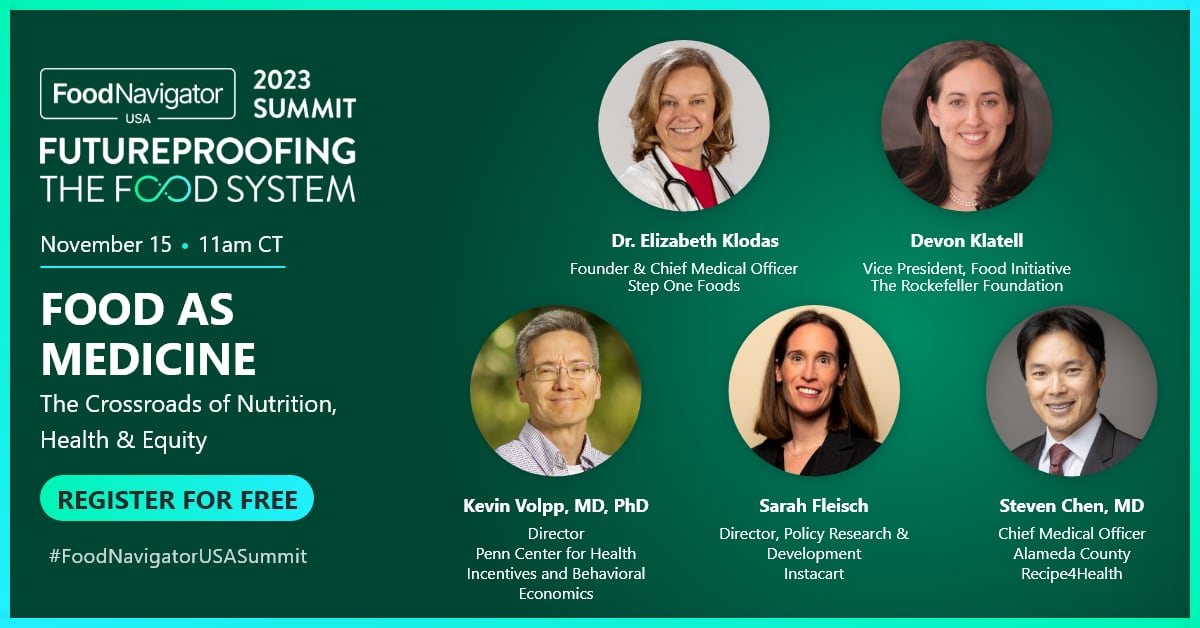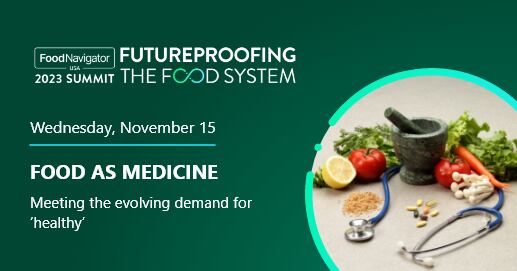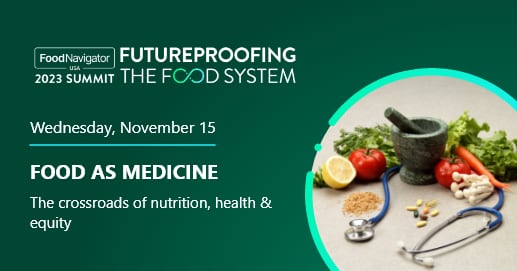“Medicine is something very serious, right? You are looking at effecting a health change with what you are presenting to someone. So, it can’t just be a promise, it has to be a true proven effect,” John Hopkins-trained cardiologist Elizabeth Klodas explained during FoodNavigator-USA’s Futureproofing The Food System virtual summit yesterday.
That is why she holds the snack bars, pancake mix, oatmeal packets and granola-like sprinkles that she created and markets under her Step One Foods brand as a cholesterol-lowering tool to the same level of scientific scrutiny that drugs must meet.
[Editor’s note: If were unable to attend the fireside chat with Dr. Klodas during day two of FoodNavigator-USA’s Futureproofing The Food System Summit, you can watch it on demand. Register for free and check out the other sessions exploring the crossroads of nutrition, health and equity.]
“We did a randomized control clinical trial – the most complex, the highest regarded type of evaluation [for drugs] on our products” with the help of Mayo Clinic and the University of Manitoba to evaluate the extent to which Step One Foods’ snacks and meals reduced participants cholesterol, she explained.
For 30 days, participants were asked to consume two servings a day of Step One Foods products instead of something else they were already eating, but not change anything else about their lifestyle or diet. After a washout period, they were asked to consume calorie-matched like-items from the grocery store provided as a control.
“What we found was in 30 days, on average, we saw a 9% LDL reduction, which is the bad cholesterol in the intervention group. There was no change and actually a slight increase in the control group,” Klodas said.
She explained that the “highly statistically significant difference between the two interventions” revealed a level or cholesterol reduction that if scaled to the full US population would “finally dethrone heart disease as our No. 1 killer.”
For many participants the results were on par with what they would see with drugs – giving her the confidence to position her products, which include at least 5 grams of fiber, 1,000 mg fatty acids, 1,000 mg phytosterols and 1,800 umol antioxidants per serving – as medicine, even though they are food and not pharmaceuticals.
Positioning food as medicine requires ongoing care and evaluation
But Klodas isn’t stopping there and she doesn’t think other players in the food as medicine space should either. Rather, she advocates for ongoing care.
“I would never put you on a pill and say, ‘Okay, I never need to see you again.’ No. Comeback. We need to see did this work. And so it’s really this same approach” that needs to apply to food as medicine, she said.
“When we talk about food as medicine, we have to think more medicine in our approach to how we evaluate, how we intervene, how we formulate,” food products, she said.
This approach is also what it takes to win over physicians who can prescribe or recommend food as medicine and evaluate its efficacy in patients, she said.
“One of the big reasons that we did the clinical trail was also as a proof point for physicians. We are used to judging the effectiveness or the credibility of an intervention through this level of scientific scrutiny, through randomized controlled clinical trails. And so, this is also about meeting physicians where they are,” and bringing them on board so they might introduce Step One Foods or other nutritional interventions as medicine, she added.
‘We could mess this up if we start promising things left, right and center’
While Klodas said she is optimistic about the potential for food as medicine to create positive, healthy change she says she is also weary that the movement could lose credibility unless stakeholders maintain a high level of integrity, scientific proof and scrutiny of their products.
“We could mess this up if we start promising things left, right and center, and it’s kind of willy-nilly. … It has to be science-based, it has to be proven, and it has to be taken very, very seriously,” she stressed.
“Again, we are talking about people’s health. We are talking about using food as medicine. An that … is just a very high bar in terms of the seriousness of the research that underscores their efficacy.”
Editor's Note: Check out the full fireside cat with Dr. Klodas by registering for free for FoodNavigator-USA's Futureproofing the Food System digital summit, which is available on demand.



